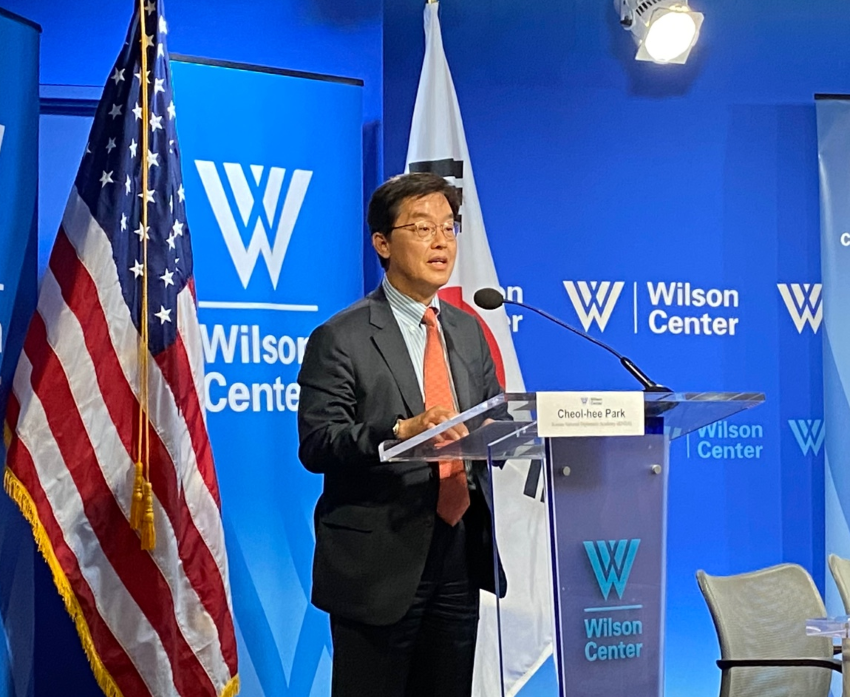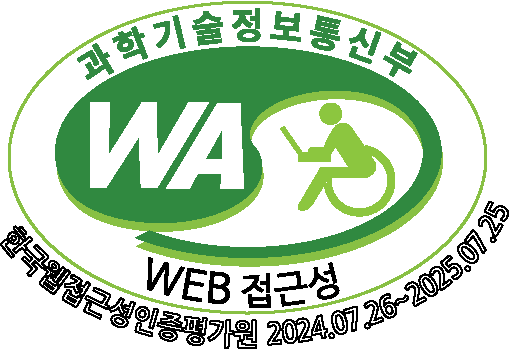국립외교원장
한미동맹 70주년 계기 한미정책포럼 축사(4.18.)
- 부서명
- 기획협력과
- 작성자
- 박철희 국립외교원장
- 작성일
- 2023-04-24
- 조회수
- 868

한미정책포럼 축사: 우드로 윌슨 센터 (2023년 4월 18일)
Good morning everyone. This is Cheol Hee Park, a newly appointed chancellor of the Korea National Diplomatic Academy at the Korean Foreign Ministry.
Dear Mr. Mark Green, CEO of the Wilson Center,
Mr. Edgard Kagan, Senior Director for East Asia and Oceania at NSC
Prof. Inhwi Park, President of the Korean Association of International Studies,
Ladies and Gentlemen,
I am pleased and honored to deliver congratulatory remarks at a very timely and important forum at the Wilson Center. I would like to express my special thanks to Mr. Green and Dr. Sue Me Terry, my good friend, for hosting this event at the Wilson Center.
This year marks the 70th anniversary of the U.S.-ROK alliance. Since its inception, our alliance has worked as a pivotal pillar for maintaining peace and stability on the Korean peninsula, prosperity in East Asia and the Pacific, and a resilient democratic and liberal order in the region.
Back in the 1950s, when our alliance started, Korea was a war-decimated country. Our lives in Korea were inevitably fraught with poverty. However, over the past seven decades, Korea has bounced back as a pivotal state with democratic governance, an advanced economy, and drivers of global soft power and culture. The U.S. has firmly stood by Korea’s side all along with a continuing U.S. security presence, economic and technological assistance, and active human and intellectual exchanges. On this occasion, I would like to express sincere gratitude to the American leaders and people for their sacrifice and dedication to making our alliance and partnership vital, resilient, reliable, and enduring.
We should also remember that the Korean people have made enormous efforts to make our country better. The Korean people fought for democracy and successfully established irreversible democratic governance. Korean business community and labor forces have worked hard to catch up with the advanced economies, elevating Korea’s place to the world’s 10th largest economy. K-pop and K-drama are sweeping the world as one of the most popular cultural items.
All these achievements were possible because we made the right strategic choice to stand together. The U.S.-led liberal international order after World War II has worked as a seedbed for making Korea a success story. There is no doubt that Korea is a living testament to the enduring power of the alliances and partnerships that the U.S. has fostered over the past decades.
As you are all aware, President Yoon Suk Yeol is going to visit Washington DC very soon. This is the first state visit to the United States by a South Korean president in 12 years. This will be a historic moment, as the two leaders will meet to commemorate the 70th anniversary of the U.S.-ROK alliance. The theme of the visit will likely be an “alliance in action toward the future.”
The Yoon government has made it clear that the U.S. and Korea will stand together to preserve and uphold the rules-based international order, and that we will work together with like-minded countries to make the Indo-Pacific free, peaceful, and prosperous. Furthermore, Korea, as a global pivotal state, will spare no effort to contribute to the international community’s efforts in resolving various issues across multiple domains.
I find President Yoon’s coming visit to the U.S. particularly meaningful as it comes after the normalization of Korea’s long-fraught relationship with Japan. Japan is not only a geographically close neighbor but also an important strategic partner for Korea in the region. The Yoon government is fully aware of the importance of elevating the level of cooperation among the three countries. I hope we can take a major leap forward in information-sharing and cyber security cooperation based on stronger trilateral ties. And Korea-Japan relations would further advance in the future through sincere and reciprocal trust-building measures.
To open a new chapter for our alliance, the U.S. and ROK should design action-oriented plans to further strengthen extended deterrence amid the ever-shifting Northeast Asian geopolitics. We must explore ways to redefine and coordinate our economic security policies through renewed trade rules, innovative technology, and aligned investments. All these efforts will gain further momentum if we significantly increase people-to-people exchanges, especially among our younger generations.
I sincerely hope we could learn a great deal from each other at today’s forum by engaging in insightful discussions.
Thank you very much.
- 메뉴담당부서
- 기획협력과
- 전화
- 02-3497-7799

